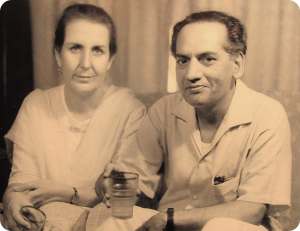Who is Eligible to Receive Zakat al Fitr? (Perspectives from Sunni and Shia Islam)
Who is Eligible to Receive Zakat al Fitr? (Perspectives from Sunni and Shia Islam)
Zakat al-Fitr, also known as Sadaqat al-Fitr, is a mandatory form of charity given by Muslims at the end of Ramadan, the Islamic holy month of fasting. It is distinct from Zakat, the third pillar of Islam, and is specifically aimed at purifying the fast and helping those in need to celebrate Eid al-Fitr. While the foundational principles of Zakat al-Fitr are shared across the Sunni and Shia branches of Islam, there are nuanced differences in their perspectives regarding eligibility criteria. This article explores these perspectives, offering a comparative understanding of who is eligible to receive Zakat al-Fitr in Sunni and Shia Islam.

Sunni Perspective on Eligibility
In Sunni Islam, the primary recipients of Zakat al-Fitr are those who are needy and in financial distress. The following categories of people are generally considered eligible:
- The Poor (Al-Fuqara’): Those who have no or very little means of livelihood.
- The Needy (Al-Masakin): Those who may have some income but it is insufficient to meet their basic needs.
- Zakat Collectors: Individuals appointed by the Islamic state or community to collect and distribute Zakat.
- New Muslims (Mu’allafatu Qulubuhum): Converts to Islam who may need financial support to strengthen their faith and integration into the Muslim community.
- Captives and Slaves (Ar-Riqaab): Although slavery is largely abolished today, this category historically included those who needed to be freed.
- Debtors (Al-Gharimin): People burdened with debts for legitimate reasons and are unable to pay them off.
- In the Path of Allah (Fi Sabilillah): This broadly includes those striving in the cause of Allah, which may encompass students, scholars, and individuals engaged in jihad.
- Wayfarers (Ibn al-Sabil): Travelers who are stranded or in need of financial assistance far from home.
Sunni scholars emphasize that the primary objective of Zakat al-Fitr is to provide for the poor and needy so they can also partake in the joy of Eid al-Fitr.
Shia Perspective on Eligibility
In Shia Islam, the principles of Zakat al-Fitr are similar, but there are some distinctions in the categories of recipients and the emphasis placed on certain groups. The eligibility criteria can be summarized as follows:
- The Poor (Al-Fuqara’): Similar to the Sunni view, those without sufficient means to live.
- The Needy (Al-Masakin): Those whose income is insufficient to meet their basic needs.
- Indebted Persons (Al-Gharimin): Individuals who are unable to pay off their debts.
- Wayfarers (Ibn al-Sabil): Travelers in need of assistance.
- Orphans (Al-Aytam): Emphasis is often placed on orphans who are in need of financial support.
- The Righteous (As-Salihun): Individuals who are engaged in the promotion and protection of Islamic values.
- Relatives (Dhawi al-Qurba): Unlike the Sunni practice where Zakat al-Fitr is generally not given to family members who are direct dependents, Shia jurisprudence allows giving Zakat to needy relatives if they fall into the eligible categories.
Shia scholars place a particular emphasis on helping those within one’s own community and ensuring that the funds are used effectively to support the welfare of the poor and marginalized.
Key Differences and Commonalities
While both Sunni and Shia traditions prioritize the poor and needy, there are some distinctions:
- Emphasis on Recipients: Shia Islam places a notable emphasis on supporting orphans and righteous individuals who contribute to the Islamic cause, alongside the poor and needy.
- Relatives as Recipients: Shia jurisprudence is more flexible regarding the allocation of Zakat al-Fitr to needy relatives compared to Sunni practices.
- Broader Interpretation of Fi Sabilillah: In Sunni Islam, the category “In the Path of Allah” (Fi Sabilillah) can be interpreted broadly, sometimes including educational and welfare projects. This category is also recognized in Shia Islam but may be applied differently.
Despite these differences, the underlying objective remains the same: Zakat al-Fitr is a means to purify the fasting individual and to help those in need, ensuring that everyone can celebrate Eid al-Fitr with dignity and joy. Both Sunni and Shia Muslims share a commitment to social justice and community welfare through the practice of Zakat al-Fitr, reflecting the core Islamic values of compassion and charity.



